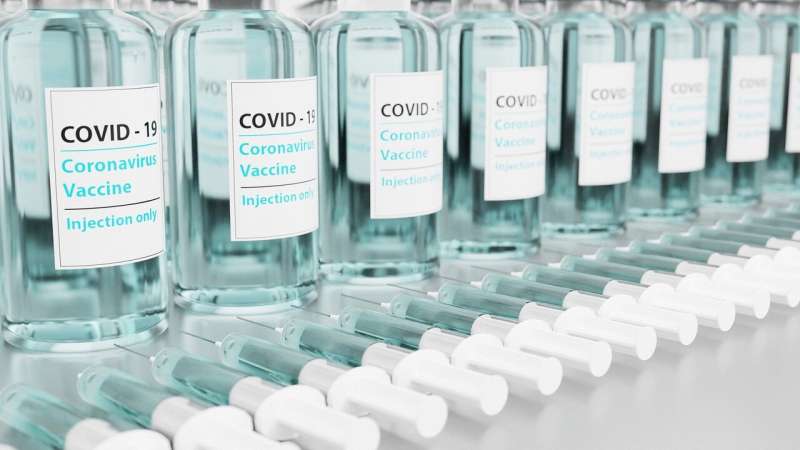Vaccination: Personal values and group dynamics are decisive

It's hard to understand the reluctance of some hospital workers to get vaccinated, given that the pandemic affects them directly and the surge of patients has pushed them to the limit. Although the proportion of staff willing to have their COVID shots has now risen to 75 percent, is this high enough? And how could it be increased?
We carried out a study on the influenza vaccination behavior of doctors. In many hospitals in Europe, healthcare workers aren't required to have the seasonal flu jab—although it's been shown to reduce levels of hospital-acquired infections. We were particularly keen to know "What role does team climate play here?"
Many high-performing teams have one thing in common, which we call psychological safety. This is a climate where team members feel safe to be themselves—they take more interpersonal risks, such as asking for help, suggesting improvements or admitting mistakes. Studies have shown that psychological safety fosters learning and innovative behavior.
The impact of psychological safety
Our study hinged on how psychological safety in a team is related to individual behavior. We assumed that psychological safety influences the behavior of team members by making it easier for them to stay true to their personal beliefs.
We know that in a psychologically safe team, individuals are less fearful of negative reactions from other members. This may mean that they're more willing to behave in a way that's consistent with their personal values, even if it contradicts team norms. They feel more comfortable acting according to their personal beliefs—even if these don't correspond to overarching goals.
Both positive and negative effects
Vaccination behavior is a good testbed for our assumptions. In a Swiss hospital, we gauged doctors' opinions on flu vaccination, their perception of psychological safety in the team, and their intention of getting vaccinated in the coming season. Three months later, we asked them whether they had been vaccinated in the meantime.
Psychological safety influenced the relationship between their attitude towards vaccination and their intention of getting vaccinated. If doctors had a positive attitude towards vaccination and perceived a high level of psychological safety in their team, this strengthened their intention of getting vaccinated. Interestingly, this also held true in reverse: those doctors who had a negative attitude towards vaccination and also perceived a high level of psychological safety were particularly reluctant to get vaccinated. Generally, the correlation between intention and how they actually behaved was strong.
Our results show that psychological safety can be a mixed blessing. It appears to promote a climate where team members feel safe to act according to their own opinion. But when this attitude isn't in line with team norms or organizational goals, psychological safety can also encourage behavior that has an adverse effect.
Seeking constructive debate
Applied to the COVID-19 vaccination situation, this means that willingness to be vaccinated is also always influenced by the prevailing social context. A supportive climate encourages us to act according to our own convictions, rather than simply conforming to the norms of the group to which we belong.
If we're to increase the willingness of hospital staff and the general public to be vaccinated, then we shouldn't be afraid to engage in open debate. A team spirit that relies on conflict avoidance can lead us to harbor attitudes that are ultimately harmful to the common good.
More information: Manuel Stühlinger et al. To Get Vaccinated or Not? Psychological Safety as a Catalyst for the Alignment Between Individual Beliefs and Behavior, Group & Organization Management (2021). DOI: 10.1177/1059601120983964





















